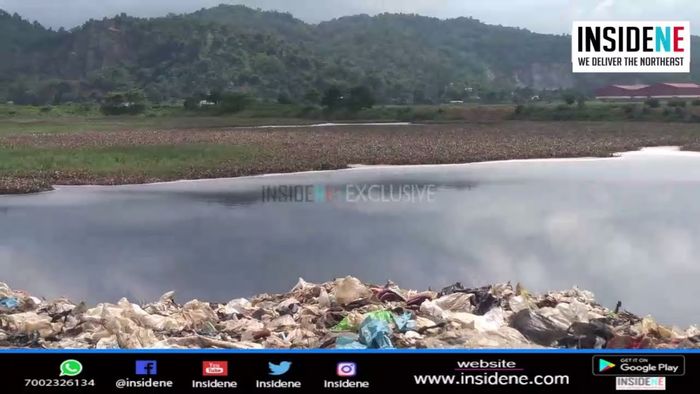Exclusive Report | GMC Dumping Site is Sole Cause Of Pollution in 'Deepor Beel'

- Jul 05, 2019,
- Updated Jul 05, 2019, 1:43 AM IST
Guwahati, July 4, 2019:
It was finally exposed how the toxic water and other liquid waste from the garbage dumping site of the Guwahati Municipal Corporation (GMC) is being poured into Assam's lone Ramsar site 'Deepor Beel' during an exclusive on-ground survey conducted by the Inside Northeast team.
Speaking to Inside Northeast, Promod Kalita, a local activist revealed that the GMC do not segregate the garbage that is dumped into the garbage dumping site and alleged that through the Pamohi channel, the polluted water of the Bharalu river and the Basistha river is drained into the 'Beel', which causes a serious threat to the sanctity of the wetland. Moreover, during rainy days, the GMC pumps out the toxic water of the dumping yard and drains it into the Deepor Beel.”
Also Read: Renowned Environmentalist Mike Pandey Urges People to Wake Up and Save the Deepor Beel
He alleged that the government authorities are well aware of these happenings, yet they feign ignorance regarding the fact that the 'Beel' is getting polluted.
“On April 29, 2019, the National Green Tribunal issued a notice ordering the state government to transfer the dumping yard to another place within 2 months. Prior to that, on February 26, in a hearing of the NGT, the state government was served notice to transfer the dumping site. But the extended time period got over on June 27, yet the site has been not transferred", laments Kalita.
Pramod Kalita also revealed that 21 Greater Adjutant birds (also known as the 'Hargilla) were found dead near the dumping ground, and added that it is a cause of great alarm.
Inside Northeast also discovered a plant that was set up in the name of production of manure from the garbage as a part of the recycling process, but now stands defunct. Surprisingly, the state government projected an expense of more than Rs 100 crore for this project.
Due to the dumping of such intoxicating substances into the Deepor Beel, aquatic plants like the water hyacinth, which is the primary aquatic plant found in the wetland, are losing their 'life source' and sheen.
Apart from that, the local fishermen who were dependent on the water body for their livelihood have lost their source of income as they cannot sell the fish found in the wetland as they stink of kerosene.